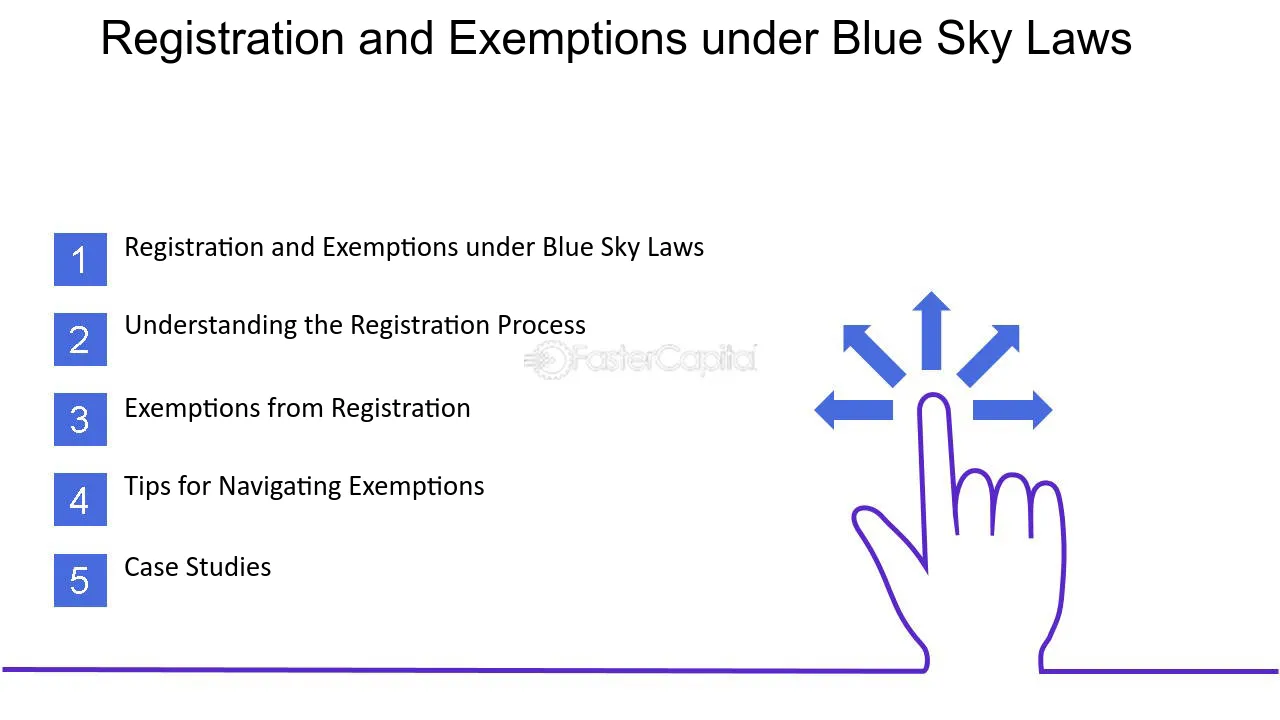Overview of the Uniform Securities Act

The Uniform Securities Act is a model law that has been adopted by many states in the United States to regulate the offer and sale of securities. It was first introduced in 1956 by the National Conference of Commissioners on Uniform State Laws (NCCUSL) and has since been revised and updated to keep up with changes in the securities industry.
The purpose of the Uniform Securities Act is to protect investors from fraud and ensure fair and efficient markets. It establishes a comprehensive framework for the registration of securities, licensing of securities professionals, and enforcement of securities laws. By adopting the Act, states can harmonize their securities regulations with those of other states, making it easier for companies to raise capital and investors to make informed investment decisions.
One of the key features of the Uniform Securities Act is the requirement for the registration of securities offerings. This means that companies must file a registration statement with the state securities regulator before offering or selling securities to the public. The registration statement includes detailed information about the company, its business, and the securities being offered, allowing investors to make informed decisions about whether to invest.
The Act also provides for the licensing of securities professionals, such as brokers, investment advisers, and dealers. These individuals must meet certain qualifications and pass exams to obtain a license, ensuring that they have the knowledge and skills necessary to provide investment advice and execute securities transactions. The licensing requirement helps to protect investors from unscrupulous individuals who may engage in fraudulent or unethical practices.
In addition to registration and licensing requirements, the Uniform Securities Act also establishes rules and regulations for the conduct of securities transactions. It prohibits fraudulent and deceptive practices, such as insider trading and market manipulation, and provides for the enforcement of these rules through civil and criminal penalties. The Act also gives state securities regulators the authority to investigate and take action against violations of the securities laws.
Overall, the Uniform Securities Act plays a crucial role in protecting investors and maintaining the integrity of the securities markets. By providing a consistent and comprehensive regulatory framework, it helps to ensure that investors have access to accurate and reliable information, and that securities professionals adhere to high ethical standards. This promotes confidence in the securities markets and contributes to their efficient operation.
Key Provisions of the Uniform Securities Act
The Uniform Securities Act is a model law that has been adopted by many states in the United States to regulate the sale and trading of securities. It provides a framework for the registration and regulation of securities brokers, dealers, and investment advisers. The act also establishes rules for the disclosure of information to investors and sets forth penalties for violations of the law.
1. Registration Requirements
One of the key provisions of the Uniform Securities Act is the requirement for securities brokers, dealers, and investment advisers to register with the state securities regulator. This registration process helps ensure that these individuals and firms meet certain minimum standards of competency and integrity. It also provides investors with access to important information about the individuals and firms they are considering doing business with.
2. Anti-Fraud Provisions

The act includes provisions that prohibit fraudulent activities in the sale and trading of securities. These provisions make it illegal to make false statements or misrepresentations to investors, manipulate market prices, or engage in other deceptive practices. The act also gives state securities regulators the authority to investigate and take enforcement action against individuals and firms that engage in fraudulent activities.
3. Disclosure Requirements
The Uniform Securities Act requires issuers of securities to provide investors with certain information about the investment opportunity. This includes information about the issuer’s business, financial condition, and the risks associated with the investment. The act also requires brokers, dealers, and investment advisers to provide investors with information about their background, qualifications, and any conflicts of interest that may exist.
4. Enforcement and Penalties
The act establishes a system for the enforcement of securities laws and the imposition of penalties for violations. State securities regulators have the authority to investigate complaints, conduct hearings, and take enforcement action against individuals and firms that violate the law. Penalties for violations can include fines, license revocation, and even criminal charges in some cases.
Application of the Uniform Securities Act
The Uniform Securities Act is a crucial piece of legislation that governs the regulation and oversight of securities in the United States. It is designed to protect investors and maintain the integrity of the securities market. The act applies to a wide range of securities and transactions, ensuring that they are conducted in a fair and transparent manner.
Scope of the Act
Furthermore, the act applies to both federal and state securities offerings. While the federal securities laws primarily regulate securities offerings made to the public, the Uniform Securities Act extends the regulatory framework to include intrastate offerings and transactions. This ensures that investors are protected regardless of whether they are participating in a national or local securities market.
Enforcement and Compliance
The Uniform Securities Act provides state securities regulators with the authority to enforce its provisions and ensure compliance. State securities agencies are responsible for licensing and registering securities professionals, as well as conducting examinations and investigations to detect and prevent fraudulent activities.
Additionally, the act establishes a system for the registration of securities offerings and requires issuers to provide investors with accurate and complete information about the securities being offered. This promotes transparency and allows investors to make informed decisions.
Violations of the Uniform Securities Act can result in civil and criminal penalties, including fines, disgorgement of profits, and imprisonment. These penalties serve as a deterrent to fraudulent activities and help maintain the integrity of the securities market.
Investor Protection
One of the primary goals of the Uniform Securities Act is to protect investors from fraud and other abusive practices. The act requires securities professionals to act in the best interests of their clients and provide suitable investment advice. It also prohibits fraudulent activities, such as misrepresentations, omissions, and manipulative practices.
Furthermore, the act establishes disclosure requirements to ensure that investors have access to accurate and complete information about the securities they are investing in. This includes financial statements, prospectuses, and other relevant documents. By providing investors with the necessary information, the act enables them to make informed investment decisions and reduces the risk of fraud.
Importance of the Uniform Securities Act
The Uniform Securities Act plays a crucial role in regulating the securities industry and protecting investors. It provides a comprehensive framework for the registration, regulation, and oversight of securities and investment professionals.
One of the key reasons why the Uniform Securities Act is important is because it promotes investor confidence. By establishing uniform standards and regulations, it ensures that investors can trust the securities market and have faith in the integrity of the financial system. This confidence is essential for the smooth functioning of the capital markets and the overall economy.
Another important aspect of the Uniform Securities Act is its role in preventing fraud and misconduct. The Act sets out clear rules and requirements for securities offerings, disclosures, and reporting. It also empowers regulators to investigate and take action against individuals or entities engaged in fraudulent activities. By deterring fraudulent behavior, the Act helps protect investors from financial harm and maintains the integrity of the securities market.
The Uniform Securities Act also promotes fairness and transparency in the securities industry. It requires investment professionals to provide accurate and complete information to investors, ensuring that they can make informed decisions. The Act also establishes rules for the conduct of securities transactions, preventing unfair practices and market manipulation.
Furthermore, the Uniform Securities Act facilitates interstate cooperation and coordination in securities regulation. By providing a consistent legal framework across different states, it simplifies the process of securities registration and compliance for issuers and investment professionals operating in multiple jurisdictions. This harmonization of securities laws reduces regulatory burdens and promotes efficiency in the securities industry.

Emily Bibb simplifies finance through bestselling books and articles, bridging complex concepts for everyday understanding. Engaging audiences via social media, she shares insights for financial success. Active in seminars and philanthropy, Bibb aims to create a more financially informed society, driven by her passion for empowering others.
